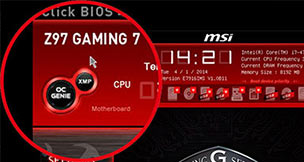msi advertised overclocking on their website so i assumed it would be capable
Technically, MSI didn't lie and you can OC your CPU.
i5-12600KF P-cores base clocks are 3.7 Ghz and boost clocks are up to 4.9 Ghz. Meaning that CPU P-cores, for the most part, run at 3.7 Ghz while boosting up to 4.9 Ghz when needed.
Now, you were able to apply all P-core OC on your CPU, where all P-cores run at constant 4.9 Ghz (max boost clocks), rather than default 3.7 Ghz. <- That still is CPU OC. But you can't get the level of OC you want, e.g 5.0 Ghz.
Btw, even if you have high-end MoBo, even then you won't gain much from CPU OC. Latest CPUs are so efficient that they have little, if any, OC headroom.
Back in the day, with older CPUs, CPU OC was worthwhile.
E.g i have i5-6600K with 3.5 GHz base and 3.9 Ghz boost. With CPU OC, i could get it 4.5 Ghz all core (increase of 600 Mhz over boost), or with delid, ~4.7 Ghz all core (800 Mhz over boost). And there have been some delidded i5-6600K CPUs, that can hold 5 Ghz all core.
Your CPU, i5-12600KF, is so efficient, that most chips out there, can only hold all core stable at 5.0 Ghz (100 Mhz over boost). With this, there is so little OC headroom, that CPU OC, IMO, isn't worthwhile.
With our H115i 280mm watercooler, albeit with the fans cranking away at full speed, we peaked at 96C for a single one-second measurement during our stress tests. The chip hovered in the 75C to 85C range during the majority of the tasks. We could absolutely wring more out of this chip, and the 5.0 GHz overclock is above the 12600K's peak 4.9 GHz speed at stock settings, which is becoming increasingly rare with newer chips.
Source:
https://www.tomshardware.com/review...-i5-12600k-review-retaking-the-gaming-crown/2
So, 100-300 Mhz OC over boost clocks is so little, that CPU OC with current, highly efficient chips, isn't worthwhile. There won't be any meaningful performance increase.
If the headroom would be bigger, like it is with my 6th gen CPU, where on minimum, i look towards 600 Mhz increase over boost clocks (or up to 1.1 Ghz over boost, if very lucky with delidded chip), then CPU OC makes sense.
All-in-all, CPU OC is dying niche and outside of record breaking, isn't worth the effort anymore.



